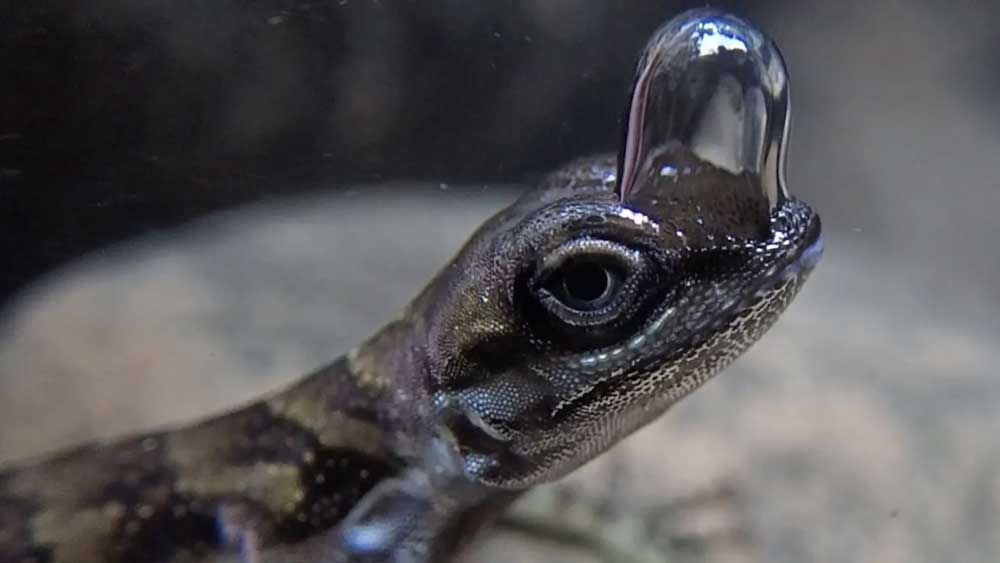Swierk notes that this interesting capability by the water anoles enables them to escape predators by diving into water and creating a bubble that enables them to stay under water for extended periods of time.
Assistant Research Prof. Lindsey Swierk of Binghamton University State University of New York has been studying water anoles for years and in 2015, she recorded a water anole (Anolis aquaticus) who submerged itself under water for more than 16 minutes, employing a bubble it created on the top of its head as a sort of scuba tank.
Scuba Anole Stays Submerged For 16 Minutes
“We know that they can stay underwater for a really long time. We also know that they’re pulling oxygen from this bubble of air,” Swierk said in a Binghamton University story detailing her findings. “We didn’t know whether there was actually any functional role for this bubble in respiration. Is it something that lizards do that is just a side effect of their skin’s properties or a respiratory reflex, or is this bubble actually allowing them to stay underwater longer than they would, say, without a bubble?”
In her research paper, “Novel rebreathing adaptation extends dive time in a semi-aquatic lizard” released September 18, 2024 in Biology Letters, Swierk shows that the bubble created by the water anole enables the little lizard to extend its “dive” time. Swierk prevented the formation of rebreathing bubbles on a water anole by putting an emollient on the surface of the anole’s skin. This was to assess the impact these bubbles had on the lizard’s capability to rebreathe and dive. She found that lizards that were able to rebreathe normally stayed under water at an average rate of 32 percent longer than those inhibited with the emollient. Swierk suggests that the lizard retreating in underwater respiration serves a functional role in the reptile. Gular pumping, another measurement Swierk took, was not affected by the use of the emollient.
“Lizard skin is hydrophobic. Typically, that allows air to stick very tightly to the skin and permits this bubble to form. But when you cover the skin with an emollient, air no longer sticks to the skin surface, so the bubbles can’t form,” said Swierk.
Swierk notes that this interesting capability by the water anoles enables them to escape predators by diving into water and creating a bubble that enables them to stay under water for extended periods of time. She says her study is the first that shows the adaptive significance of bubbles.
Water Anole Information
The water anole is a semi-aquatic anole species native to Costa Rica and Panama. it is known to spend periods of time underwater by forming a bubble atop its head and recycling the air in its air supply. It is known as the “scuba diving” anole. it feeds on insects that are also water dwellers. Other studies say the scuba capabilities enables it to hunt underwater insects as well.


